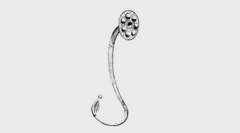Keywords
nature, planting, literature
Abstract
The Jutland heath was, in a certain sense, created by Danish writers. It was writers such as Steen Steensen Blicher, Meir Goldschmidt, hans Christian Andersen, Jeppe Aakjær, and Johannes V. Jensen who, in their literary depictions, gave the heath a voice, image, and form that made it accessible as a place of experience for their own and future ages. In doing so, they created a place of inheritance—a dynamic, living place of experience that we can possess forever and refer to as part of our cultural inheritance. Today, the heather-clad heath of Jutland exists only in small clumps that have been left behind in a productive landscape that is mainly the province of agriculture, but a few places like Rebild Bakker and Kongenshus Mindepark still remain intact. They are small in size but great in importance, for they pass on the memory of what once was. They tell and retain history.
Recommended Citation
Frandsen, Johs. Nørregaard
(2018)
"The Jutland Heath as a Literary Place of Inheritance: Hans Christian Andersen, St. St. Blicher, and Jeppe Aakjær,"
The Bridge: Vol. 41:
No.
2, Article 11.
Available at:
https://scholarsarchive.byu.edu/thebridge/vol41/iss2/11
Included in
European History Commons, European Languages and Societies Commons, Regional Sociology Commons


